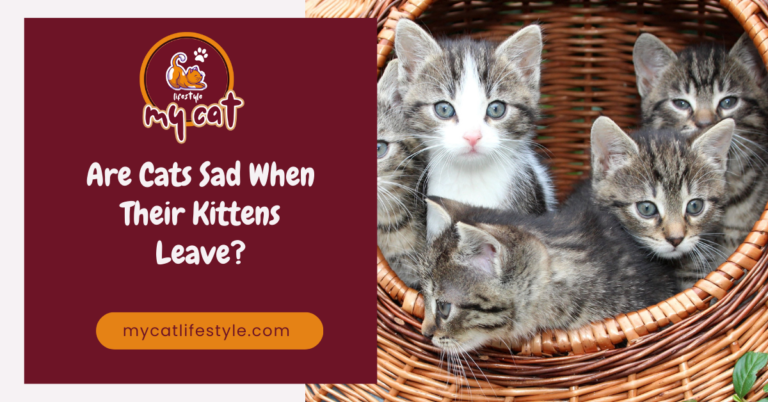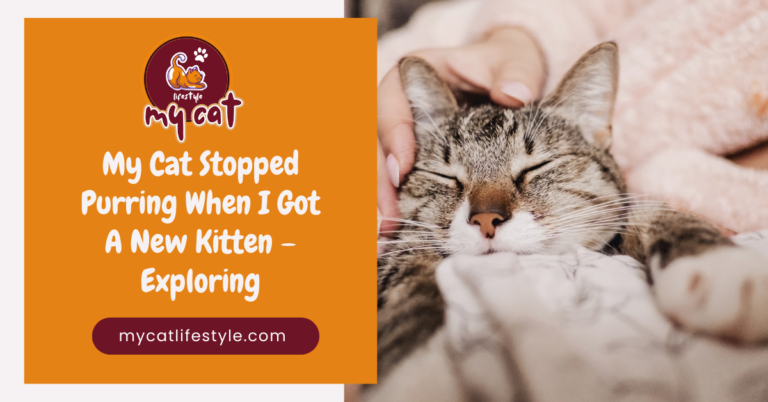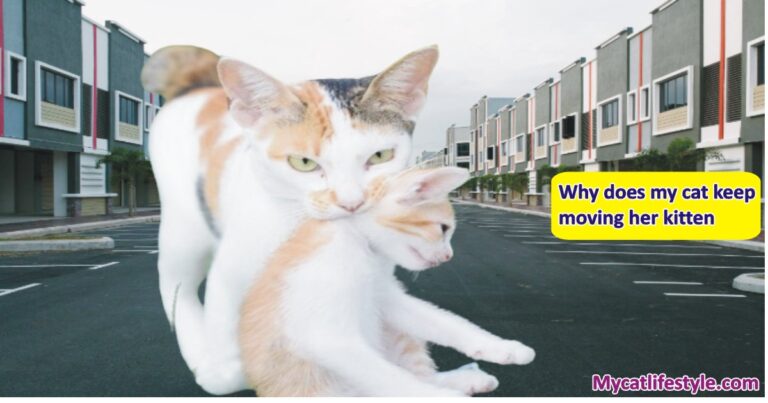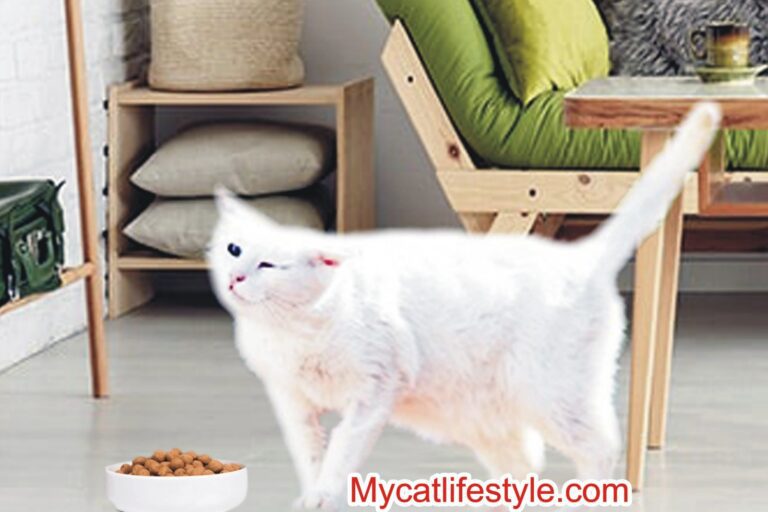Why does my cat pee by the front door? (Or Spray)
Why does my cat pee by the front door? (Or Spray)” If your cat usually uses the litter box without issues, it can be baffling and frustrating to discover them targeting your front door as a new spot to relieve themselves. It might not just be your cat—other neighborhood felines could also be marking the outside of your door. No one enjoys the unwelcome scent of urine greeting them in their entryway. To address this unwanted behavior effectively, it’s crucial to investigate its reasons.
Why does my cat pee or spray by the front door?
Dealing with your cat peeing or spraying by the front door can be challenging, leaving you to wonder if your furry friend is expressing their displeasure. However, it’s important to dispel the myth that cats act out of spite. Cats are more complex than that, and their reasons for peeing by the door are likely not driven by anger or revenge.
Understanding Peeing vs. Spraying
Recognizing the difference between peeing and spraying is vital as these actions are similar yet stem from distinct motives. While both involve urine, the purposes and underlying reasons differ significantly.
Spraying
Typically, when a cat sprays, they aim at a vertical surface. They back up to it, tail aloft, and eject a fine mist of urine, often twitching their hind legs. This behavior is more about communication—marking territory, signaling availability to mates, or even expressing anxiety.
Peeing
On the other hand, peeing is purely a physiological need. Cats assume a squatting position and release more urine to empty their bladder, which doesn’t carry the same communicative intent as spraying.
Understanding these differences is crucial for addressing the behavior appropriately, recognizing that while spraying is behaviorally motivated, peeing is a physical necessity.
Marking
Marking behavior is a prevalent reason cats might urine mark or spray, both serving as potent forms of olfactory communication. Each cat’s urine carries a unique scent signature. When other cats encounter this scent, it informs them that another cat has already claimed the territory.
Cats are naturally territorial creatures. They mark territories and may defend them if they perceive a threat. If outdoor cats roam near your home, your cat might mark the front door to announce ownership, telling other cats, “This place is taken!” Likewise, external cats might leave their marks on or near your door as a form of competition or rebuttal.
Sexual signaling is another motivator behind marking. Male cats will mark to signal their availability to fertile females, akin to dropping a flirtatious hint. Similarly, a female cat in heat might leave her scent to advertise her readiness to mate, comparable to slipping a phone number on a napkin in the feline social scene.
Furthermore, marking can be a defensive tactic. If a potential predator lurks outside, a cat might mark near the entry points as a warning to fellow felines and as a protective measure to establish their presence and strength. This behavior underscores their instinct to secure and defend their territory.
Stress or Anxiety
Cats might also face urinary issues due to stress or anxiety, leading to conditions such as Feline Lower Urinary Tract Disease or Feline Idiopathic Cystitis (FIC). Common symptoms of this ailment include straining during urination, excessive genital licking, bloody urine, and pain when urinating, often accompanied by urinating outside the litter box. Here, psychological stress manifests into a physical disorder.
Beyond medical reasons, stress can also prompt behavioral issues, leading to inappropriate urination. Stress might be the culprit if your cat alternates between using the litter box and urinating elsewhere. It’s typical for cats to select the exact location for stress urination, often near doors or windows where external stimuli are more noticeable.
Changes in the environment or routine can also provoke this behavior. If your cat has started peeing by the door, look for recent changes such as your absence, the arrival of a new pet or family member, moving to a new home, or even rearranging the furniture.
Additionally, the door itself can be a source of stress. As a high-traffic area with frequent comings and goings, it can create a sense of unrest or anxiety in your cat, exacerbating stress-related behaviors.
Wants to Go Out
If your cat prefers urinating outdoors, they might peep by the door when they wish to go outside but aren’t let out in time. In cases where this behaviour is consistent—only by the door—it likely indicates that your cat is signalling their need to be outside.
Medical Reasons for Inappropriate Peeing
Inappropriate peeing in cats can be traced back to several medical issues grouped into three broad categories: conditions that make urination painful, those that increase the frequency of urination, and those involving physical or mental deterioration.
Painful Conditions
Besides Feline Idiopathic Cystitis (FIC), conditions like bladder stones and urinary tract infections (UTIs) can lead to distress during urination. Signs that your cat is suffering might include apparent distress, pain during urination, straining to urinate, and an increased frequency of urination.
Increased Frequency
Diseases that enhance urination frequency include kidney disease, liver disease, diabetes, and hypothyroidism. These conditions disrupt the standard urinary patterns of cats, leading to more frequent trips to the litter box or inappropriate places.
Physical and Cognitive Disorders
Some cats experience physical or cognitive disorders that lead to inappropriate urination. This includes feline dementia and issues affecting the muscles or nervous system, impairing a cat’s ability to control their bladder effectively.
Understanding these underlying causes is essential for addressing inappropriate urination, ensuring that any medical issues are appropriately managed, and adjusting to accommodate your cat’s needs and comfort.
Why does my cat pee by the bedroom door?
While it may seem odd, a cat peeing by your bedroom door can sometimes be a sign of affection, albeit in a less-than-ideal manner. It’s important to understand that this behavior isn’t about spite but about your cat’s attachment to you.
Marking as a Sign of Affection
Cats use marking to claim territory; sometimes, that territory is yours. If your cat is marking your bedroom door, they might signal other pets in the home that you are ‘theirs’. This behavior can be more pronounced in households with multiple pets but can occur even if you only have one cat. Some cats naturally have a more possessive or territorial demeanor, which might lead them to mark your door and personal belongings like clothes and purses or even directly on you. They do this to mix their scent with yours, a feline way of bonding and showing affection.
Separation Anxiety in Cats
Contrary to their reputation for independence, many cats vary widely in their need for companionship and can suffer from separation anxiety. This anxiety can manifest differently among cats:
- Some may handle brief periods alone but become anxious if left alone for an extended period, such as during a workday.
- Others might become distressed when you leave the room or the house.
Cats with separation anxiety often exhibit clingy behavior. They might shadow you around the house, curl up on your lap frequently, or seek attention through persistent pawing or meowing. A key symptom of separation anxiety is vocalizing distress through meowing or crying, especially when you’re about to leave. Upon your return, these cats may show exaggerated excitement.
Other signs of anxiety include excessive grooming, changes in appetite, and inappropriate elimination, such as urinating outside the litter box on personal items or near significant locations like your bedroom door. Additionally, they might engage in destructive behavior, targeting items they know are off-limits.
Understanding these behaviors can help you better cater to your cat’s emotional needs and address any underlying issues contributing to their stress.
Seeking Comfort When Missing Owner
In cases separate from separation anxiety, your cat might miss your presence and uniquely seek comfort by peeing near your bedroom door. This behavior can occur particularly when you are away, signalling a less severe reaction compared to separation anxiety. While it may still be concerning, it indicates that your cat is more capable of managing your absence. They might urinate near your door to maintain a connection to you, embedding their scent in an area that smells strongly of their beloved owner. Though not ideal for you, this act is comforting for them, helping them feel closer to you even when you’re not around.
How do I get my cat to stop peeing by the door?
Addressing your cat’s behaviour of peeing by the door requires understanding the underlying cause. Fortunately, there are effective strategies you can implement to help eliminate this undesirable habit.
Get a Checkup
Start with a veterinary checkup to rule out medical issues. Even if you suspect the behaviour is due to environmental or emotional factors, it’s essential to eliminate the possibility of health problems. If the vet finds no medical cause, you can be confident that the issue is behavioural.
Destress Your Cat
Anxiety might be contributing to your cat’s behaviour. To help them feel more secure, consider enhancing their environment:
- Provide a private retreat where your cat can escape when stressed. This could be a cosy hideaway on the floor, such as under your bed, inside a cat house, or even a simple cardboard box. A shelf or the top of a dresser might be ideal for cats that prefer higher ground.
- Ensure their safe spot is in a low-traffic area to avoid disturbances.
Repel Outside Cats
If neighborhood cats are causing your cat to mark territory by the door, consider these deterrents:
- Use natural repellents like citrus peels or mint essential oils around your property.
- Plant mint or other deterrent plants around your yard.
- Cat repellent sprays and predator urine can be effective, but avoid using solid scents like predator urine near your home, as it might stress your cat. Instead, apply it around the property’s perimeter.
- A motion-activated sprinkler can help keep cats away without constant monitoring.
Keep Your Cat Away From the Door
Applying cat repellents like citrus or mint oils directly inside your door can also prevent your cat from peeing there. However, if the root cause of the behaviour isn’t addressed, your cat may find a new spot.
Spay or Neuter
Unfixed cats are more prone to territorial marking. Spaying or neutering your cat can reduce this behaviour significantly. It’s generally advised to wait until your cat is around 1 year old before neutering, as early fixing can affect their physical and emotional development. However, consult your vet to determine the best timing based on your cat’s health and behaviour.
Implementing these strategies can significantly assist in stopping your cat from peeing by the door and contribute to a happier, healthier environment for you and your pet.
Frequently Asking Question
1. Why does my cat pee at my front door?
Cats may pee at the front door for several reasons, including marking territory, expressing anxiety or stress, or signalling a medical issue. It can also occur if your cat wants to go outside but cannot access the outdoors.
2. How do I stop my cat from spraying on the front door?
To stop your cat from spraying on the front door, consider the following strategies:
- ·Ensure your cat has been neutered or spayed, as this can reduce marking behaviours.
- ·Use deterrents such as citrus scents or cat repellent sprays around the door area.
- ·Provide a stress-free environment and identify any external factors, like neighbourhood cats, that might be causing stress.
- ·Consult with a vet to rule out any medical issues.
3. Why is my cat peeing on the doormat?
Peeing on the doormat could be your cat’s way of marking territory, especially if the doormat has outdoor scents or other pets in the home. It might also be a sign of anxiety or discomfort. Check the location for any triggers and ensure your cat has a clean, accessible litter box.
4. Why does my cat pee like he is spraying?
When a cat pees in a spraying posture—backing up to a vertical surface and quivering the tail—it’s typically a form of territorial marking rather than relieving their bladder. This can be influenced by hormones, especially in unneutered males, and can also be triggered by environmental stress or changes in the home.





